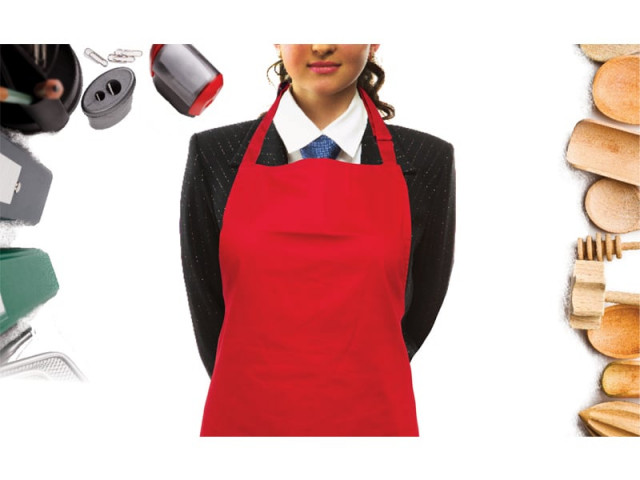
One of the best ways to survive in any competitive market is to carve your own unique space. Women in Pakistan have quickly caught on to this trend over the past decade and have set up successful business ventures in a market which was previously considered a man’s domain.
Even though setting up a business initially sounds like a formidable task, all you need is a unique idea, the spirit to keep trying and a little capital.
Breaking barriers
If you closely observe the digital landscape, it is brimming with examples of women who have effectively utilised their expertise in their respective domains (clothes, shoes, jewellery and food etcetera) by launching small businesses and have also successfully tapped into the wide array of digital marketing tools that the internet now has to offer. Aamina Jahangir, who has been running The Cakery, a home-based bakery since 2007, is one such example. “I was very young when I decided to formalise my business and starting from home was the only option I had at the time. I am glad because it helped me build a career from the bottom up,” she explains. When Jahangir initially set up a shop, all she had was Rs12,000 at her disposal. Since then, however, The Cakery has grown from a home-based venture to a Café and Bake Studio. The bakery’s Facebook page has almost 140,000 followers and countless raving reviews, which also shows how Jahangir has used social media to market her business.

However, it has not been an equally easy ride for everyone. Sidra Qasim, co-founder of an online business portal selling handmade Pakistani shoes globally under the brand name, Markhor, says her family was not very receptive of her idea initially. “The only support I had from my parents was the consent to try it for few months, though they were very unhappy about this.” But when you believe in your product and idea, little else can stand in the way. The venture which connects local craftsmen making shoes in Okara to customers across the world is the brainchild of Qasim and her partner, Waqas Ali. However, often potential partners prefer to speak to Qasim’s male counterpart rather than dealing with her. “In such interactions, I put a considerable amount of energy to get them understand my passion for my work. Over the years I have come to the conclusion that if you are passionate and know what you are doing, people will eventually take you seriously,” she says.
Make it big with a little help
A unique idea is only half the battle won. The automatic next step is to look for investment that can turn the idea into a reality. While most people dig into their savings, take on friends and family as partners or apply for bank loans, there are also other more innovative ways of securing the required capital. For Qasim and her co-founder, the monetary support came from Pasha Social Innovation Fund (PSIF), a venture which focuses on providing financial assistance for entrepreneurs who have an innovative idea and use technology to bring it forth. The duo won a grant of $10,000 (approximately Rs1,000,000) in September, 2011, which was sufficient to launch their website in 2012 and get the ball rolling. Along with financial help, the PSIF also mentors selected individuals in order to kick start their career. The procedure to enroll in the programme is simple — all one has to do is come up with an innovative idea and submit it to the organisation by filling the form available at their website.
Moreover, developmental projects aimed at facilitating women entrepreneurship have also made a substantial difference by encouraging women to run their own businesses. Small and Medium Enterprises Development Authority (SMEDA), one of the premier institutions of the Government of Pakistan under Ministry of Industries, was established in 1998 in order to take on the challenge of developing Small and Medium Enterprises (SMEs) in Pakistan. SMEDA provides guidance to women who are keen to do business but don’t wish to venture into independent offices. For women running business from homes, SMEDA can be an immensely helpful resource that provides them with the required advice and concept clearance about starting up businesses from their homes.
Other initiatives such as National Productivity Organization (NPO), which developed the Women Entrepreneurship Development System (WEDS) — a system designed to improve competitiveness for women who want to move from home-based business to commercial venues — are also available. The purpose of this initiative is to facilitate women entrepreneurs, especially from rural areas, by creating an exclusive female-friendly environment that offers furnished offices, exhibition/display facilities and business development services. Currently, NPO has successfully set up a pilot WEDS in Multan for around 10 women entrepreneurs and since then the demand for setting a bigger centre has been requested by other women entrepreneurs in the vicinity, as well.
A better future ahead
Despite positive trends, statistics indicate that there is still a great deal of progress to be made in terms of representation for women in the business world. According to the 2007 Labour Force Survey of Pakistan, 75% of female labour force is engaged in agricultural activities, as opposed to jobs in manufacturing, trade, transport or communication. Among the total female working population, only 26.7 % of the women are either employers or self-employed and an alarming 20.9 % are unpaid family workers. The situation has not improved much since then as equally high unemployment rates and low labour participation rates for females are seen in the Labour Force Survey of 2012-13.
In Pakistan, productivity and economic progress can take a positive direction if women, who constitute about 49.19% (World Bank survey 2011) of the total population, have an equally high participation in the labour force. Things seem to be going in the right direction albeit gradually. “Home based businesses are increasing in number and all the power to them,” says Jahangir. She hopes that they also bring some much needed originality to the market, adding that, women entrepreneurs are extremely supportive of one another, “I can safely say that our kind is here to stay.”
Published in The Express Tribune, Ms T, August 24th, 2014.


















COMMENTS
Comments are moderated and generally will be posted if they are on-topic and not abusive.
For more information, please see our Comments FAQ